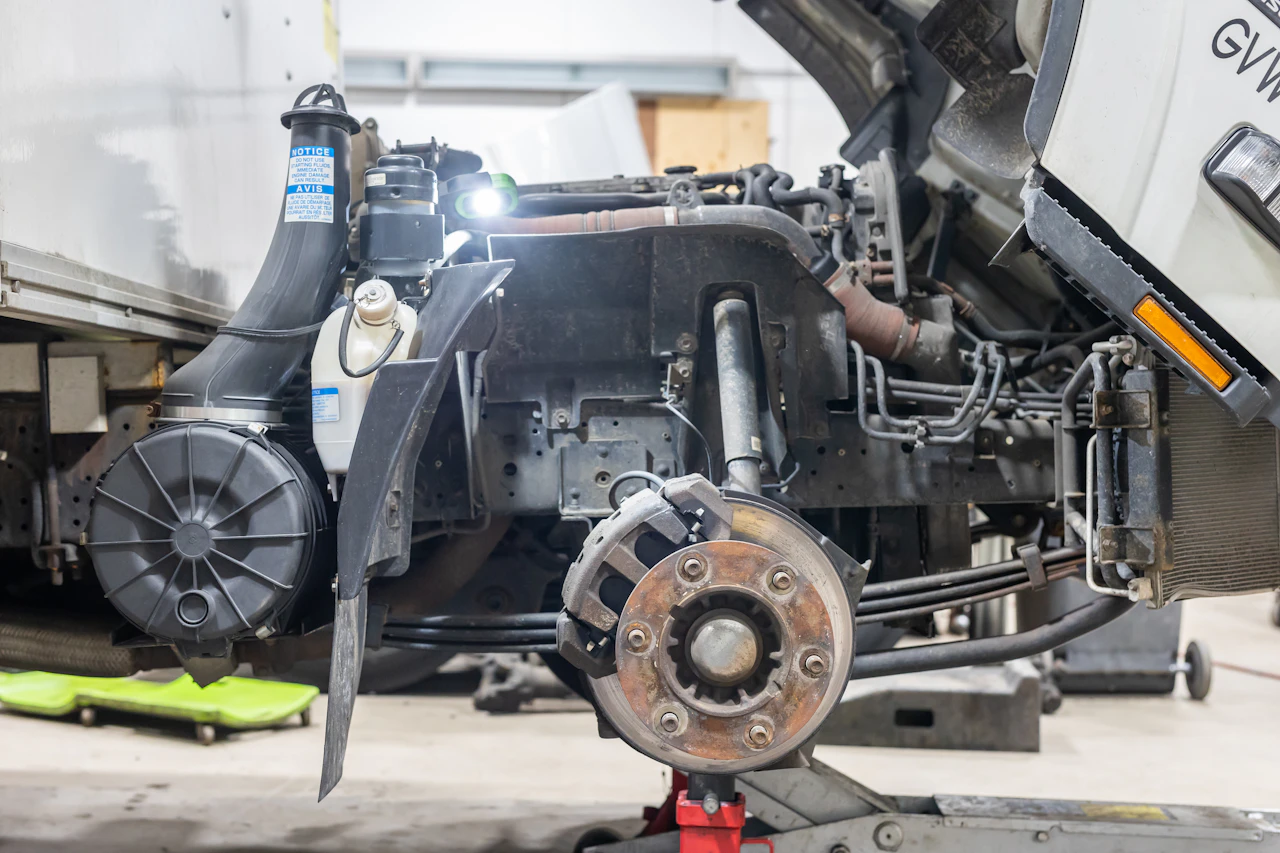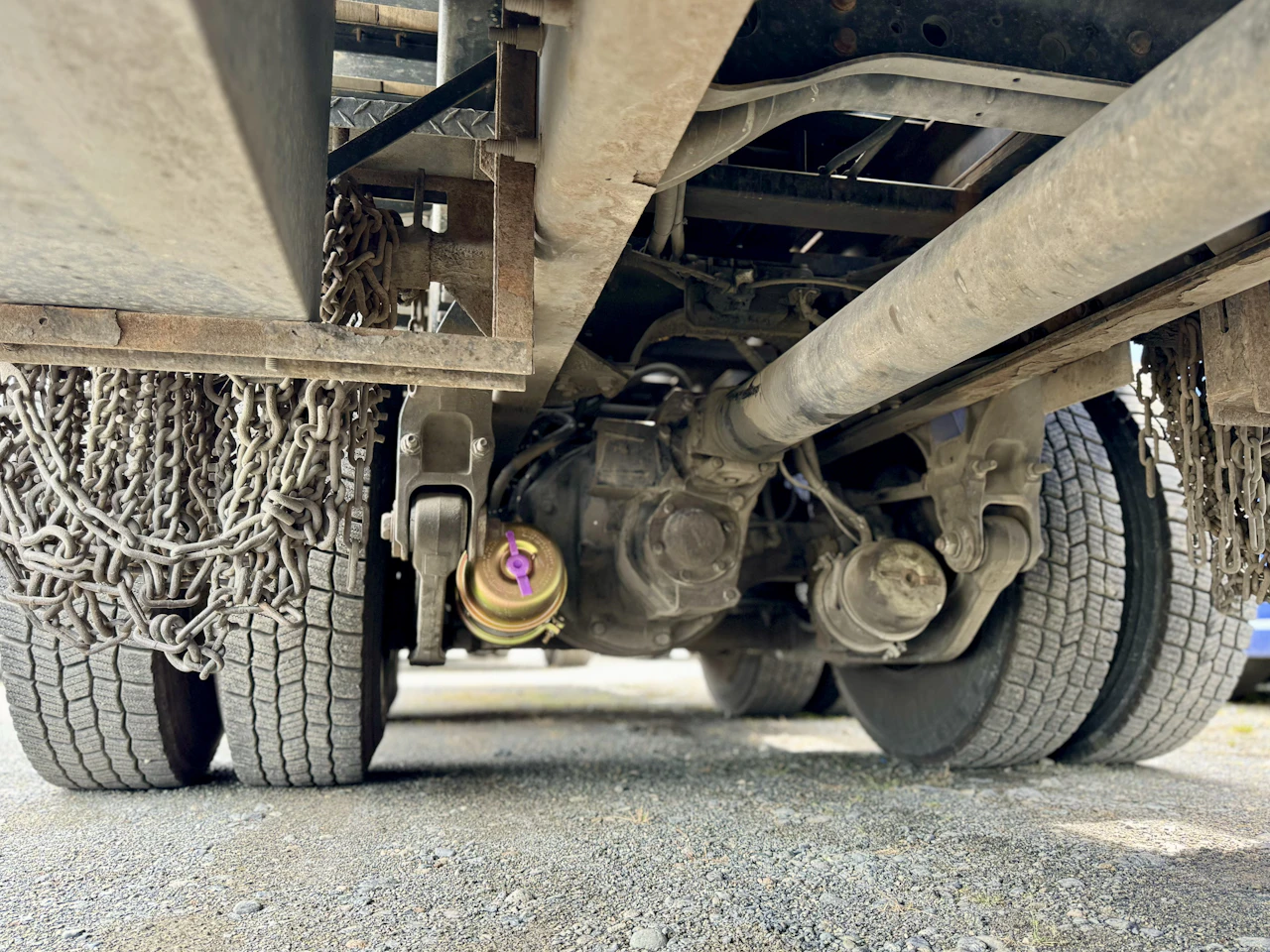Long hauls present a unique challenge for truckers and their vehicles, particularly when it comes to engine temperature. An overheating engine can cause significant downtime, expensive repairs, and even complete engine failure. This is why it’s essential to understand how to keep your engine cool, especially on those extended trips. Let’s explore the best practices for maintaining your engine’s temperature, ensuring your truck stays on the road and avoids any unnecessary breakdowns.
Regular Coolant System Maintenance: Your First Line of Defense
Your truck’s coolant system is designed to keep the engine from overheating, and regular maintenance of this system is critical. The coolant system consists of several key components, including the radiator, water pump, thermostat, hoses, and coolant reservoir. Each part plays a vital role in regulating engine temperature, and neglecting any of them can lead to overheating.
One of the most important maintenance tasks is regularly checking and replacing the coolant. Over time, coolant can break down and become less effective at absorbing heat, leading to potential overheating issues. Additionally, coolant can become contaminated with rust and debris, which can clog the system and reduce its efficiency. Regularly flushing and replacing the coolant is essential to maintain its effectiveness.
At National Fleet Management, we recommend scheduling routine coolant system inspections to ensure all components are functioning correctly. At our Charlotte, NC, Greensboro, NC, Durham, NC, Statesville, NC, and Kinston, NC locations, experts can identify and repair any issues before they lead to costly breakdowns. Regular maintenance not only extends the life of your engine but also improves fuel efficiency and overall vehicle performance.
Monitor the Temperature Gauge: Early Detection is Key
The temperature gauge on your dashboard is a crucial tool for monitoring your engine’s health. It provides real-time feedback on the engine’s temperature, allowing you to detect any potential overheating issues before they become severe. It’s important to familiarize yourself with the normal operating range of your truck’s temperature gauge so you can quickly identify when something is wrong.
If you notice the temperature gauge creeping into the red zone, take immediate action. Reducing your speed, turning off auxiliary equipment like air conditioning, and pulling over to allow the engine to cool down can prevent further damage. Ignoring an overheating engine can lead to severe engine damage, potentially leaving you stranded on the side of the road.
In some cases, the temperature gauge may indicate a problem that isn’t immediately obvious, such as a failing thermostat or a clogged radiator. If you notice consistent fluctuations or higher-than-normal temperatures, it’s a good idea to have your truck inspected by professionals. National Fleet Management offers comprehensive diagnostic services to identify and address any underlying issues.
The Importance of High-Quality Coolant
Not all coolants are created equal. Using a high-quality coolant can make a significant difference in your engine’s performance, particularly during long hauls. High-quality coolants are formulated to provide superior heat absorption, corrosion protection, and overall cooling efficiency, even in extreme conditions.
When selecting a coolant, it’s essential to choose one that meets or exceeds your truck manufacturer’s specifications. High-quality coolants often include additives that help prevent corrosion, cavitation, and the formation of scale inside the coolant system. These additives are crucial for maintaining the integrity of the system and ensuring long-term performance.
At National Fleet Management, we use only the best coolants available, ensuring that your engine is protected under the most demanding conditions. Whether you’re hauling through the scorching heat of the Southwest or the humidity of the Southeast, having the right coolant in your engine is key to preventing overheating.
Avoid Overloading: Less Stress, Less Heat
Overloading your truck is a common cause of overheating. When your vehicle is carrying too much weight, the engine has to work harder, generating more heat in the process. This added strain can quickly lead to overheating, especially on long hauls where the engine is already under continuous stress.
To avoid this, always adhere to the recommended weight limits for your truck. Properly distributing the load across the vehicle is also important to ensure that no single part of the engine is under excessive strain. Overloading not only increases the risk of overheating but can also lead to other mechanical issues, such as premature wear on the brakes and tires.
Planning your load and route carefully can make a big difference in preventing overheating. If you’re consistently pushing your truck to its limits, consider adjusting your load or taking more frequent breaks to allow the engine to cool down. National Fleet Management can help you assess your truck’s performance and recommend strategies to optimize your load management.
Route Planning and Rest Stops: Strategic Cooling
Strategic route planning can play a significant role in managing your engine’s temperature during long hauls. When planning your journey, consider factors such as terrain, ambient temperature, and available rest stops. Long, steep grades can put extra stress on the engine, causing it to overheat if not managed properly.
Identifying rest stops where you can pull over and allow your engine to cool down is especially important during the summer months. In extreme heat, even a well-maintained coolant system can struggle to keep the engine cool. Taking regular breaks to let the engine rest can prevent overheating and reduce the overall strain on the vehicle.
In addition to rest stops, consider the timing of your journey. Driving during cooler parts of the day, such as early morning or late evening, can help reduce the risk of overheating. At National Fleet Management, we understand the demands of long-haul trucking and can provide advice on route planning to minimize the risk of engine overheating.
Utilize Engine Fans and Auxiliary Cooling Systems
Modern trucks are equipped with advanced cooling technologies designed to keep the engine temperature in check, even under heavy loads and extreme conditions. Engine fans, for instance, increase airflow over the radiator, helping to dissipate heat more effectively. Auxiliary cooling systems, such as oil coolers or transmission coolers, can also play a crucial role in managing the engine’s temperature.
However, these systems need to be in good working order to be effective. Regular maintenance and inspections are necessary to ensure that fans, coolers, and related components are functioning properly. If you’re unsure about the condition of your truck’s cooling systems, National Fleet Management offers thorough inspections and maintenance services to keep everything in top shape.
Emergency Measures: What to Do When Your Engine Overheats
Even with the best preparation, there may be times when your engine begins to overheat during a long haul. Knowing how to respond in these situations can prevent further damage and get you back on the road quickly.
If you notice your engine is overheating, reduce your speed and turn off any auxiliary equipment. Find a safe place to pull over and allow the engine to cool down. Avoid opening the radiator cap while the engine is hot, as this can cause serious injury. Once the engine has cooled, check the coolant level and top it off if necessary.
If you’re low on coolant and don’t have any on hand, water can be used as a temporary solution to get you to the nearest service station. However, remember that water doesn’t provide the same cooling efficiency as coolant and should only be used in emergencies.
Conclusion: Keeping Your Engine Cool and Your Hauls Safe
Keeping your engine cool on long hauls is essential for avoiding breakdowns and ensuring that your deliveries arrive on time. By following these tips—performing regular maintenance, monitoring your temperature gauge, using high-quality coolant, avoiding overloading, planning your route, utilizing cooling systems, and knowing how to respond to emergencies—you can keep your engine running smoothly even on the most demanding journeys.
At National Fleet Management, we understand the challenges of long-haul trucking and are here to help you maintain your fleet. With locations in Charlotte, Durham, Greensboro, Statesville, and Kinston, NC, as well as mobile service in Dallas-Fort Worth, TX, and Carlisle, PA, we’re your trusted partner in keeping your trucks on the road and your engines cool.
Don’t let the heat get the best of your engine. Contact National Fleet Management today to schedule a coolant system inspection or any other maintenance services you need to stay on the road. For more tips and information, check out our coolant system repair services.

